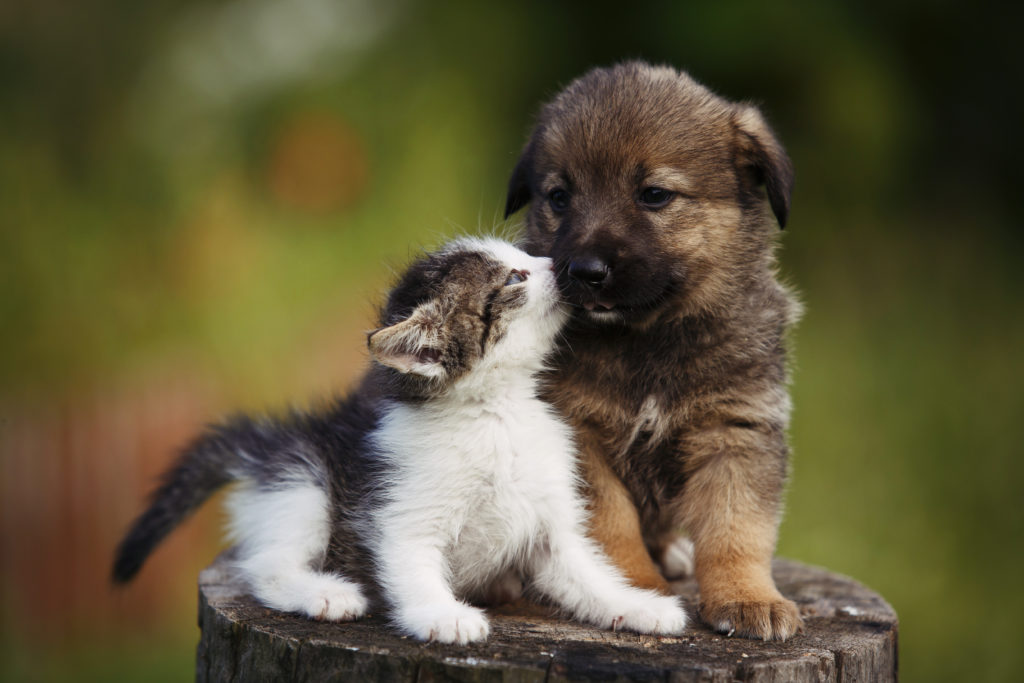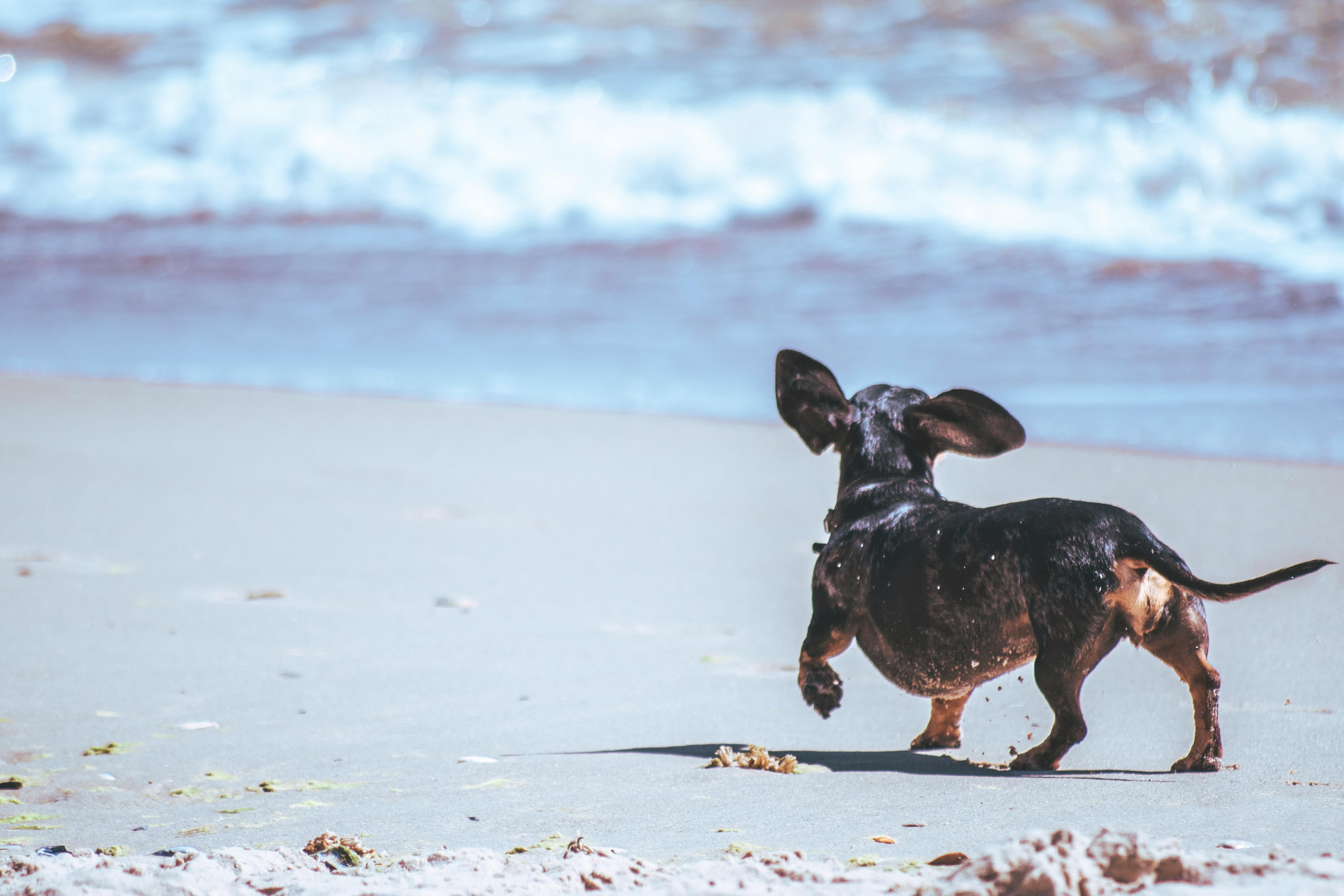
So you fell in love with those cute puppy eyes. Bringing home a new furry family member is exciting but can be exhausting sometimes,
especially waking up at night for a crying puppy and constantly cleaning up after them. Yep, puppies eat, sleep, play and eliminate… a lot!
Every puppy will eventually learn to toilet in appropriate areas if given the chance – very few dogs have problems with toileting past adolescence and if they do, it could be due to physical or psychological reasons. But let’s not get there yet. Let’s teach your new puppy to use an area you would like for them to use when nature calls.
First of all, it is important to remember that young puppies are like babies or toddlers without the nappy on. They don’t have the physical ability to hold their bladders and it takes time for their neural pathways to develop so they can make the connection between “I need to go” and “I need to go outside”. So please be patient in the first few weeks or even months.
Each puppy is different and there is some variation between maturity levels of different sized pups. Some learn quicker, some slower and a lot depends on your vigilance and management too. Most pups learn to use an appropriate toileting area by 5-6 months of age, some learn even faster.
If your puppy is still having accidents after 9 months of age, you should talk to your vet to rule out any underlying medical conditions. Adolescent puppies can sometimes urinate in excitement and even adult dogs can eliminate when they feel scared, so please get them assessed by a behaviour vet if you’re not having success with the below suggestions.
As a rule of thumb, the more free range your pup has of the home, the bigger the risks of accidents. If you can’t supervise your puppy, a baby gate or puppy playpen is highly recommended to keep them safely confined to an area that’s not too big and easy to clean. If you can keep a close eye on your pup, you can allow them to explore and watch for those signs…
What are the signs that a puppy needs to go to the toilet? Sniffing the floor, circling, moving away from people, hiding behind furniture can mean something is about to happen. If you can spot your puppy doing any of these signs, quickly and gently pick them up and take them outside. If they already started peeing or pooing, please let them finish, and try not to get angry.
Scolding your pup only makes him or her worried or scared – no-one should feel that they’re not allowed to perform a normal behaviour like relieving themselves. Making them fearful means that you’re actually more likely to find “hidden presents” and “getting into trouble” means that they don’t learn where you do want them to go. You’ll be more vigilant next time (it is a skill that can be learned too!).
Rugs and mats are very inviting for pups and they can’t tell the difference between your expensive Persian rug and a cheap door mat – they are both perfect toilets in their eyes! So if you don’t want your rugs to have stains on them, please roll them up for a few weeks until your puppy is more reliable with toileting.
Using puppy pads near the exit points can reduce accidents. Puppies have a natural tendency to do their business outside, but sometimes can’t get there in time. If you have a big area that your puppy can explore, it is a good idea to have a few puppy mats around the house in the first few weeks and then gradually reduce the number of in-door toilets as your pup reliably uses the pads.
Puppies would prefer to eliminate on grass, but if you don’t have a grassy backyard, you can set up an area on your balcony/verandah with an artificial grass mat or real grass – you can even get a fresh patch of grass delivered to you every few weeks.
It is also important what cleaning products you use. Some contain ammonia that will attract dogs (and cats) to pee on that spot. Some smell great for a human nose, but can’t trick a dog’s extra special nose, which picks up on a whole range of scents that we can’t. Enzymatic cleaning products will break down the smells instead of masking them, so your pup is less likely to go back to the same spot if cleaned up properly.
Puppies generally have to eliminate every few hours, depending on activity levels. They usually need to go straight after waking up from a nap, exercise or playtime, and within 30 minutes of eating and drinking.
In an ideal world, you should take your puppy outside (or to his designated toileting area) every 1-2 hours initially and then less frequently as your pup matures and you are getting better at reading the warning signs.
Accidents will happen for a few weeks, so please do not get cross with your pup – it is not their fault that they can’t hold their bladder. Much like human babies, it is just a developmental stage they have to go through. Gentle guidance and rewarding for doing their business in the right spot will help them learn quicker.
Ensure you don’t yell at, push their nose into their mess or use any type of punishment on your puppy if they have an accident, as this may cause them to be afraid of you and toilet away from you next time (e.g. behind the couch). There is absolutely no point in punishing pups as they won’t understand what they did wrong.
Instead, give them a big praise when they are doing their business in the right spot so they are likely to do it again in the correct place. You can even teach them to urinate on cue by adding a word to the action (e.g. “toilet” or “wee wee”). This can be handy if you are in a hurry or need to take a urine sample from your dog later on.
If you are still having trouble toilet training your puppy or you have an adult dog that is having accidents inside the house, get in touch with us at any of the following contacts so we can help you.
Mobile: 0481 527 678
Email: info@healthypetbehaviourvet.com.au
Online booking: click here

News & Updates
🐾 Now on the Sunshine Coast – Behavioural Services Starting 17 June!
We’re excited to share that Healthy Pet Behaviour Services will now be consulting on the beautiful Sunshine Coast at the Queensland
Veterinary Specialists
hospital in Warana